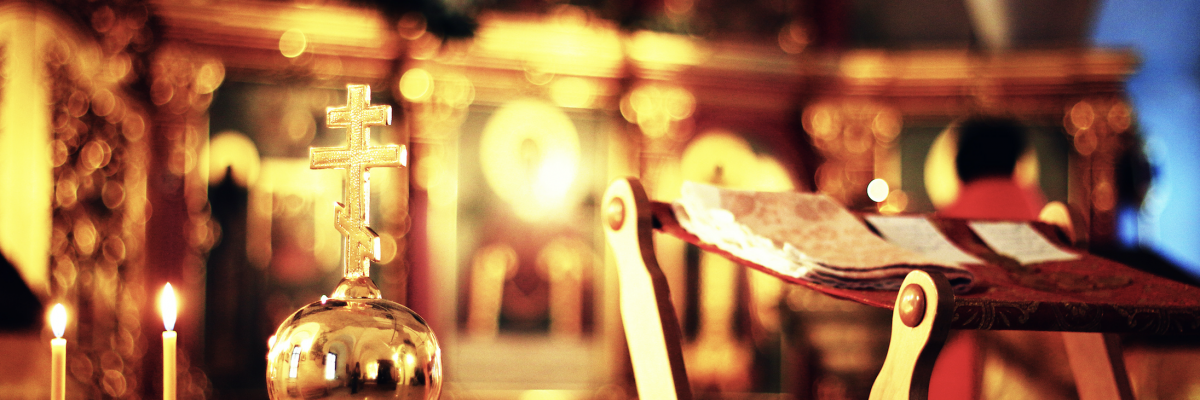
Last week, Bishop Thomas Paprocki of Springfield, Illinois issued a decree forbidding persons in “same-sex marriages” who cause public scandal from receiving Communion or from being received into the Church through RCIA if they choose not to end their relationship. Pastors are to meet with such individuals in private and call them to conversion through the sacrament of reconciliation.
Some, like Fr. James Martin, have criticized the decree as an example of the Church’s judgmentalism and lack of inclusion. But when we examine the Church’s teaching on celebrating funerals we see that it’s not intended to bring condemnation to sinners but rather prayerful support for the deceased and solace hope for the living.
Who can receive a Catholic funeral?
According to the Code of Canon Law, “Deceased members of the Christian faithful must be given ecclesiastical funerals according to the norm of law” (1176.1). This also includes catechumens who died before they received the sacraments of initiation like baptism and confirmation (CIC 1183.1). If a bishop deems it appropriate, a funeral can also be given to children who died before being baptized or even, in some cases, to a baptized non-Catholic (CIC 1183.2-3).
The inclusion of catechumens and unbaptized children shows that the Church wants to provide funerals for as many believers as possible. However, canon 1184 stipulates that:
Unless [the deceased] gave some signs of repentance before death, the following must be deprived of ecclesiastical funerals:
1. Notorious apostates, heretics, and schismatics;
2. Those who chose the cremation of their bodies for reasons contrary to Christian faith;
3. Other manifest sinners who cannot be granted ecclesiastical funerals without public scandal of the faithful.
The Catechism teaches that “The bodies of the dead must be treated with respect and charity, in faith and hope of the Resurrection” (2300). This means all people, including non-Christians, should receive honorable burials. But in the context of a Christian funeral we recognize that “the Church who, as Mother, has born the Christian sacramentally in her womb during his earthly pilgrimage, accompanies him at his journey’s end, in order to surrender him ‘into the Father’s hands’” (CCC 1683).
A Christian funeral can serve as a reminder to those who have separated themselves from God through mortal sin that they should reconcile with God as soon as possible, since the time of our earthly departure can be sudden and unexpected. But a funeral for someone who engaged in manifest, unrepentant sin could cause those in attendance, or even those who merely hear about the funeral, to think that certain mortal sins are not a big deal. “After all,” they may ask, “If the morally certain hope of eternal life is preached at this person’s funeral, then why would it be wrong to live just like he did?”
This part of canon law does not forbid funerals for Christians who struggled with sin (otherwise no one would have a Christian funeral). It also does not forbid funerals for people whose struggle with serious sins had become public knowledge. It only includes “manifest sinners” whose funerals could cause the faithful to think their unrepentant, mortally sinful behavior was not a serious matter. It prohibits liturgies that distort the truth that “all who die in God’s grace and friendship [emphasis added], but still imperfectly purified, are indeed assured of their eternal salvation” (CCC 1030).
A less-controversial example that illustrates this point involves refusing funerals to members of organized crime families. Notorious gangsters such as John Gotti and Paul Castellano, for example, were denied Catholic funerals because of their potential for scandal.
Inconsistent discrimination?
In response to Bishop Paprocki’s decree, Fr. James Martin—who recently published a book on how the Church can build bridges with the “LGBT community”—wrote this on his public Facebook page:
If bishops ban members of same-sex marriages from receiving a Catholic funeral, they also have to be consistent. They must also ban divorced and remarried Catholics who have not received annulments, women who has or man who fathers a child out of wedlock, members of straight couples who are living together before marriage, and anyone using birth control. For those are all against church teaching as well. Moreover, they must ban anyone who does not care for the poor, or care for the environment, and anyone who supports torture, for those are church teachings too. More basically, they must ban people who are not loving, not forgiving and not merciful, for these represent the teachings of Jesus, the most fundamental of all church teachings. To focus only on LGBT people, without a similar focus on the moral and sexual behavior of straight people is, in the words of the Catechism, a “sign of unjust discrimination.”
The problem with Fr. Martin’s response is that it fails to make a distinction between gravely evil, public displays of sin that can cause scandal, and other types of sin against which the faithful struggle.
Take, for example, his claim that someone like Bishop Paprocki should also deny funerals for people “who are not loving, not forgiving and not merciful.” According to James 3:2, “we all make many mistakes,” so we should expect the deceased at Christian funerals to have failed at times to be loving or merciful. But there is a difference between being a sinner and being a cause for scandal. A person’s “failure to love” would only involve the latter if it was exceptionally grave, publicly known, and unrepented (as with the mafia bosses we discussed earlier). To equate any failure to love or forgive with remaining in a disordered, publicly recognized sexual union reveals an ignorance of the Church’s teachings on the gravity of sin (CCC 1854).
What about failing to care for the poor, the environment, or prisoners? These failures to act only become gravely sinful under certain conditions, such as by causing serious harm. They are not like specific actions, such as murder or sexual activity outside of marriage, that are always wrong and can become mortal sins if a person who knows they are gravely wrong freely chooses to commit them anyway. Likewise, the conditions for these sins to become objects of scandal are also fairly rare. A public advocate of social Darwinism who wanted the poor to “die off” might engender enough scandal to deny him funeral rites, merely being lax about contributing to a second collection would not result in a similar ecclesial sanction.
Having conceived a child outside of marriage is not an ongoing source of scandal, since a person could repent of that sin and still live out a holy vocation of parenthood. Contraception use is not a publicly known matter, so a priest could not know with certainty if a person repented of this sin before death. A same-sex union, on the other hand, is a matter of public record and it would be known if someone remained in such a union until death. Unless a pastor made it known that the deceased had vowed to remain chaste and repented of his behavior, a funeral for such a person would be a cause for scandal. The sin of contraception might only reach a similar level of scandal if a Catholic publicly and notoriously advocated for its use: such as by being a director of a Planned Parenthood or similar organization.
Finally, there is the issue of allowing funerals for Catholics who remain in invalid marriages. Some theologians hold that funerals for Catholics in invalid marriages are scandalous and so they should not be celebrated. But other theologians and bishops believe that funerals in this case can be offered in a way that does not lead to scandal. The Diocese of Bridgeport, Connecticut, for example, allows funeral masses for Catholics in invalid marriages who upheld Church teaching (by living as brother and sister, for example) but recommends the “Funeral Liturgy Outside Mass” for those who neglected the Church’s teaching on marriage in this regard.
We must also remember that the fact that the deceased was in an invalid marriage would only be known by a select number of people and so it would have a low potential for generating scandal. If the deceased were in a same-sex union, however, the invalid and disordered nature of the relationship would be known by anyone who heard about the funeral. Given the unique political climate surrounding the issue of homosexuality, such a funeral could attract widespread attention and be used as a platform to misinform people about the Church’s teachings on this subject or a rallying cry to change the teachings and undermine the Church’s authority in the process.
But what should a parish do if a member of a same-sex couple approaches them seeking a funeral? They should show, contra critics like Fr. Martin, that it is possible to be compassionate towards those who suffer without scandalizing others and leading them into sin.
A pastor or parish staff member faced with this request should remember that the surviving member of such a couple will certainly be experiencing a deep sense of grief. He or she may also be suffering from loneliness, depression, or financial hardship. Catholics should reach out to such a person, who is created in the image of God and loved by him, and strive to meet his or her basic human needs through empathy and acts of charity, especially to help alleviate the financial burdens and emotional tolls that accompany burying a loved one.
This person may be hurt by the denial of a Catholic funeral, but by offering an olive branch of compassion this person can have a genuine encounter with Christ, who always calls us to conversion and gives us the grace to follow him in any circumstance.



